
The River Tame flows through Greater Manchester, England. It rises on Denshaw Moor and flows to Stockport where it joins the River Goyt to form the River Mersey.

Edward Arthur Milne FRS was a British astrophysicist and mathematician.

Richard Assheton Cross, 1st Viscount Cross,, known before his elevation to the peerage as R. A. Cross, was a British Conservative politician. He was Home Secretary from 1874 to 1880, and from 1885 to 1886.
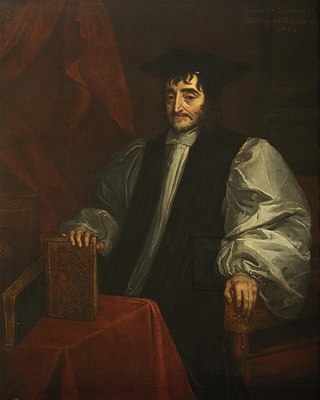
George Morley, was a senior member of the Church of England from London, who served as Bishop of Worcester from 1660 to 1662, and of Winchester from 1662 to 1684.
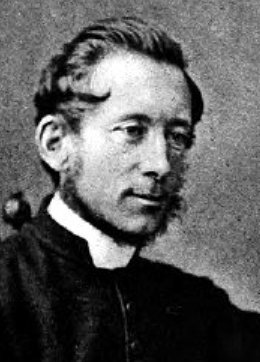
John Bacchus Dykes was an English clergyman and hymnwriter.

Matthew Wren was an influential English clergyman, bishop and scholar.
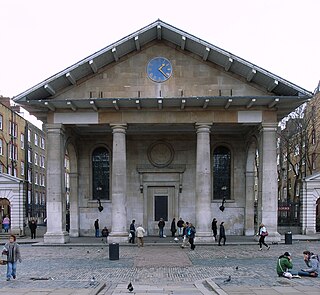
St Paul's Church is a Church of England parish church located in Bedford Street, Covent Garden, central London. It was designed by Inigo Jones as part of a commission for the 4th Earl of Bedford in 1631 to create "houses and buildings fit for the habitations of Gentlemen and men of ability". As well as being the parish church of Covent Garden, the church has gained the nickname of "the actors' church" by a long association with the theatre community.
This is a timeline of English history, comprising important legal and territorial changes and political events in England and its predecessor states. To read about the background to these events, see History of England.
A large number of places in the U.S were named after places in England largely as a result of English settlers and explorers of the Thirteen Colonies.
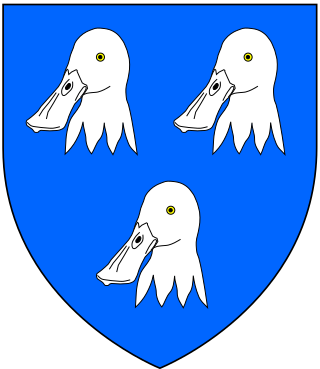
Edmund Lacey was a medieval Bishop of Hereford and Bishop of Exeter in England.
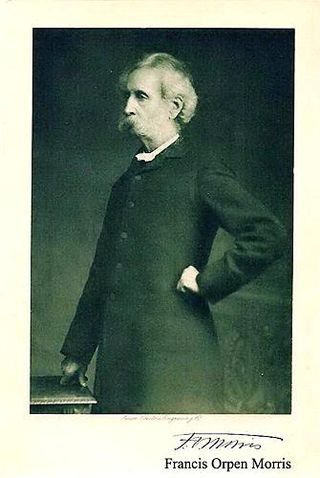
Francis Orpen Morris was an Anglo-Irish clergyman, notable as "parson-naturalist" and as the author of many children's books and books on natural history and heritage buildings. He was a pioneer of the movement to protect birds from the plume trade and was a co-founder of the Plumage League. He died on 10 February 1893 and was buried at Nunburnholme, East Riding of Yorkshire, England.
Ralph Brideoake (1612/13–1678) was an English clergyman, who became Bishop of Chichester.
Benjamin Morgan Cowie was Dean of Manchester and then Exeter, both in England, in the last quarter of the 19th century.
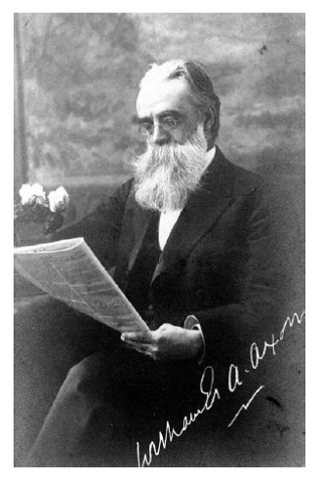
William Edward Armytage Axon was an English librarian, antiquary and journalist for the Manchester Guardian. He contributed to the Dictionary of National Biography under his initials W. E. A. A. He was also a notable vegetarianism activist.
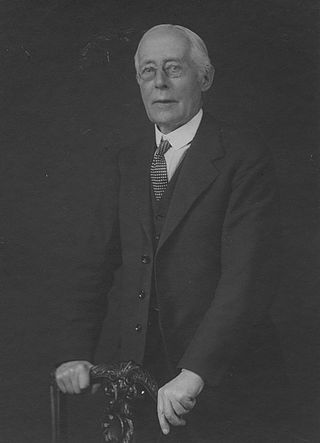
Edward Jenks, FBA (1861–1939) was an English jurist, and noted writer on law and its place in history. Born on 20 February 1861 in Lambeth, London, to Robert Jenks, upholsterer, and his wife Frances Sarah, née Jones, he was educated at Dulwich College (1874–77) and King's College, Cambridge, where he was scholar (1886) and, in 1889-95, fellow. He graduated B.A., LL.B. in 1886, and M.A. in 1890. He was awarded the Le Bas Prize and the Thirlwall Prize and was chancellor's medallist. In 1887 he was called to the Bar and for the next two years lectured at Pembroke and Jesus colleges, Cambridge.
Henry Law was Dean of Gloucester from 1862 until his death.
Christopher Robert Cheney was a medieval historian, noted for his work on the medieval English church and the relations of the papacy with England, particularly in the age of Pope Innocent III.

John Hull (1761–1843) was a prominent physician and obstetrician in Manchester during the late 18th and early 19th centuries. He played an active role within the city's medical profession, and engaged in debate on issues of the day. He established himself as a physician and became prominent in the field of obstetrics.
George Buckley Bower was an English churchman and academic. He was Archdeacon of Richmond from 1797 until his death.
In English cricket, the years 1846–1863 were the main period of the sport's "roundarm era". Although roundarm had been legalised amid great controversy, its timespan was relatively short. By 1863, there was an increasing demand for the legalisation of overarm bowling and this was achieved on 10 June 1864.
This page is based on this
Wikipedia article Text is available under the
CC BY-SA 4.0 license; additional terms may apply.
Images, videos and audio are available under their respective licenses.











